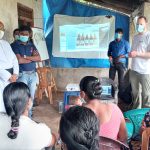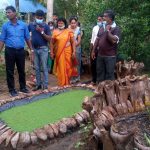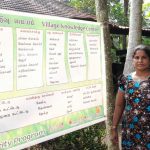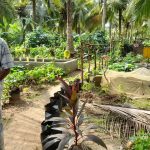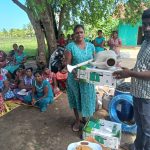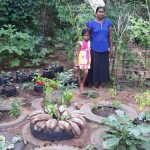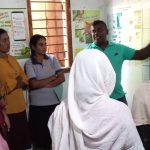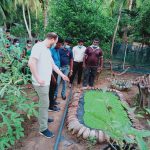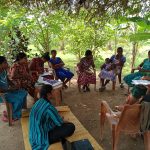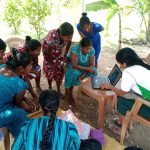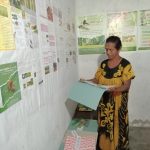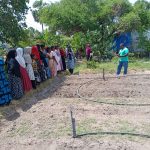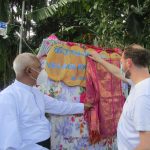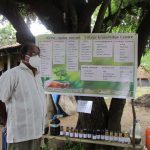Village Knowledge Centres (VKCs) are community-focussed to address the needs of the community through various information technologies and innovative ways. VKCs are village-level community institutions located in common places, enabling farmers to access all their knowledge requirements in the village.
The concept addresses the strong disconnect between farmers and knowledge holders underpinning the need for timely access to required information and knowledge services through local knowledge drivers in villages. Small-holder farmers / Family farmers in the remote areas are in regular need of dynamic, scientific information and knowledge on Agriculture and other areas to improve their lifestyle.
For the reason that the Village Knowledge Centre (VKC) is a fresh concept in Sri Lanka, CSL made a lot of initiatives to aware and establish VKCs in Sri Lanka. CSL collaborates with M.S.Swaminathan Research Foundation (MSSRF) in India to improve the capacity of its local field staff who are the part of Food Security Program in Sri Lanka. MSSRF is one of the pioneer non-profit organizations in India, which received the First World Food Prize in 1987. The Foundation aims to accelerate the use of modern science and technology for agricultural and rural development to improve the lives and livelihoods of communities. MSSRF established more than 70 Village Knowledge Centres in India which addresses technological options to resolve practical problems faced by rural populations in agriculture, food, and nutrition.
Mrs. (Dr.) Rengaluxmi and Dr. R. Rajkumar, Senior scientists from MSSRF stepped forward to capacitate the CSL participants on various VKC services and highlighted that the main purpose of the VKC is to provide scientific and locale-specific information and knowledge related to Climate Smart Agriculture, Animal Husbandry, Health and Nutrition, Employment, Education and Government services.
In addition, an exposure opportunity was initiated by CSL – SEDEC to give space for the field-level staff of the Food Security program to closely learn and discuss the ground reality to present the right / demand-oriented VKC concept in their working areas.
VKC helps farmer collectives to reach out the demand-driven content, value-added information, and capacity building to address the challenges of climate variabilities in Agriculture knowledge-sharing initiatives on agroecology, marketing, animal husbandry, health, education, government programs, and extension services, etc by using Modern Information & Communication Technologies (ICT). Idealized VKCs have a good association with local and regional markets.
Principally, VKCs are equipped with a wide variety of Hard & soft reading materials, a demonstration garden with traditional/modern gardening elements to facilitate the exploration of dynamic information necessary to the villagers based on their needs, and equipped with new strategies to develop the technical knowledge of the users using new Information & Communication technological media such as Mobile based advisory services with government agricultural instructors, video conferences, Phone-in programs, social media, video-based learning, physical/digital plant clinics spots, Virtual practical sessions, VKC based WhatsApp groups for digital services, Access to digital market information, Access to digital hydrometeorological information and E – Libraries, etc to disseminate dynamic and static information and knowledge.
Generally, VKCs are connected to governmental agrarian service centres of particular geographical areas, which will be the main hub, located at a central point. It will mobilize and process the needed information/requirement of local farmers and delivers it to the village resource persons (VRPs) in the form of reading materials or in-person training. Trained village resource persons (VRPs) are good at the management of modern ICT tools and will be in charge of the VKCs at the village level.
VKCs can be accessed by any locals irrespective of caste, class, gender, and age. Need-based content creation (Pull content & Push content) is periodically done based on the assessment of well-maintained VKC logbooks and feedback books where users could write their opinion to improve the services or trainings.
Caritas Sri Lanka network strongly believes that the VKCs in Sri Lanka will play a pivotal role in the future and develop their training modules, audio, video, and text content for the identified technologies and conduct capacity-building programs to address the need of smallholder farmers.
Caritas Sri Lanka hopes that these Village Knowledge Centres will work with other stakeholders also in the future to create an optimal platform to meet the needs-based requirements of its users.


